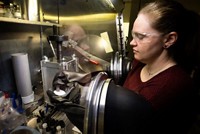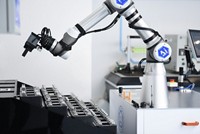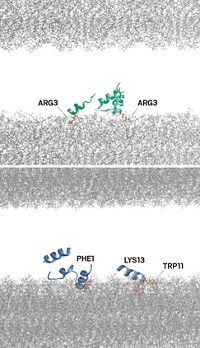Advertisement
Grab your lab coat. Let's get started
Welcome!
Welcome!
Create an account below to get 6 C&EN articles per month, receive newsletters and more - all free.
It seems this is your first time logging in online. Please enter the following information to continue.
As an ACS member you automatically get access to this site. All we need is few more details to create your reading experience.
Not you? Sign in with a different account.
Not you? Sign in with a different account.
ERROR 1
ERROR 1
ERROR 2
ERROR 2
ERROR 2
ERROR 2
ERROR 2
Password and Confirm password must match.
If you have an ACS member number, please enter it here so we can link this account to your membership. (optional)
ERROR 2
ACS values your privacy. By submitting your information, you are gaining access to C&EN and subscribing to our weekly newsletter. We use the information you provide to make your reading experience better, and we will never sell your data to third party members.
Synthesis
Cloud Computing For Organic Photovoltaics Sets A Record
High-performance computing accelerates efforts to find low-cost, efficient organic semiconductors for LED displays and solar cells
by Stephen K. Ritter
November 18, 2013
| A version of this story appeared in
Volume 91, Issue 46
The advent of faster computers, the ability to tap into unlimited numbers of those computers via the Internet, and more sophisticated data analysis software have led to improved high-throughput screening of molecules for drug discovery and materials science. In a record-breaking example, a team at Cycle Computing, based in Stamford, Conn., in collaboration with organic electronics expert Mark E. Thompson of the University of Southern California, has announced the results of a computing run to search for new organic semiconducting materials as replacements for silicon-based materials. On Nov. 3, the team used Cycle Computing’s CycleCloud system with Schrödinger’s materials software on more than 156,000 interconnected computers on five continents to collectively screen some 205,000 candidate molecules. The run chewed up 2.3 million computing hours in an elapsed time of only 18 hours, tapping into $68 million worth of equipment at a cost of only $33,000, according to Cycle Computing CEO Jason Stowe. The molecules screened included simple organic compounds, such as pentacene, in which CH units were systematically replaced by nitrogen, benzyl, or other groups, Thompson says. Thompson’s group is now mining the data to find optimal molecules for semiconducting applications, with an eye toward molecules that will be easy to synthesize and test in devices such solar cells.





Join the conversation
Contact the reporter
Submit a Letter to the Editor for publication
Engage with us on Twitter